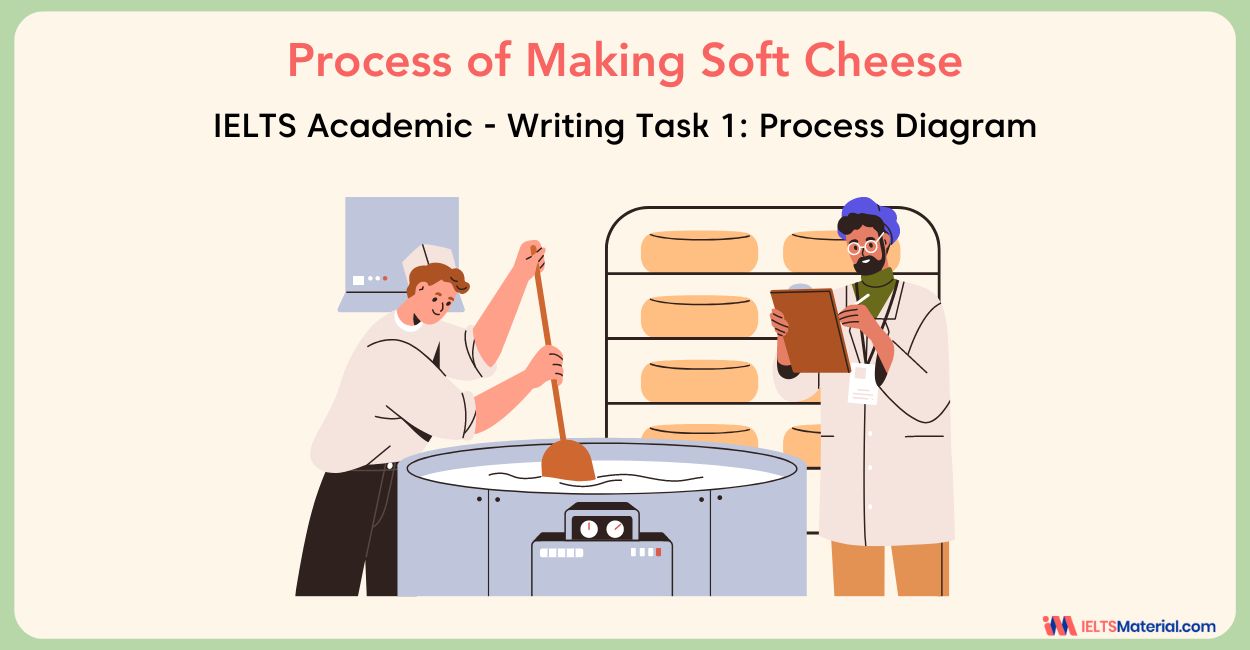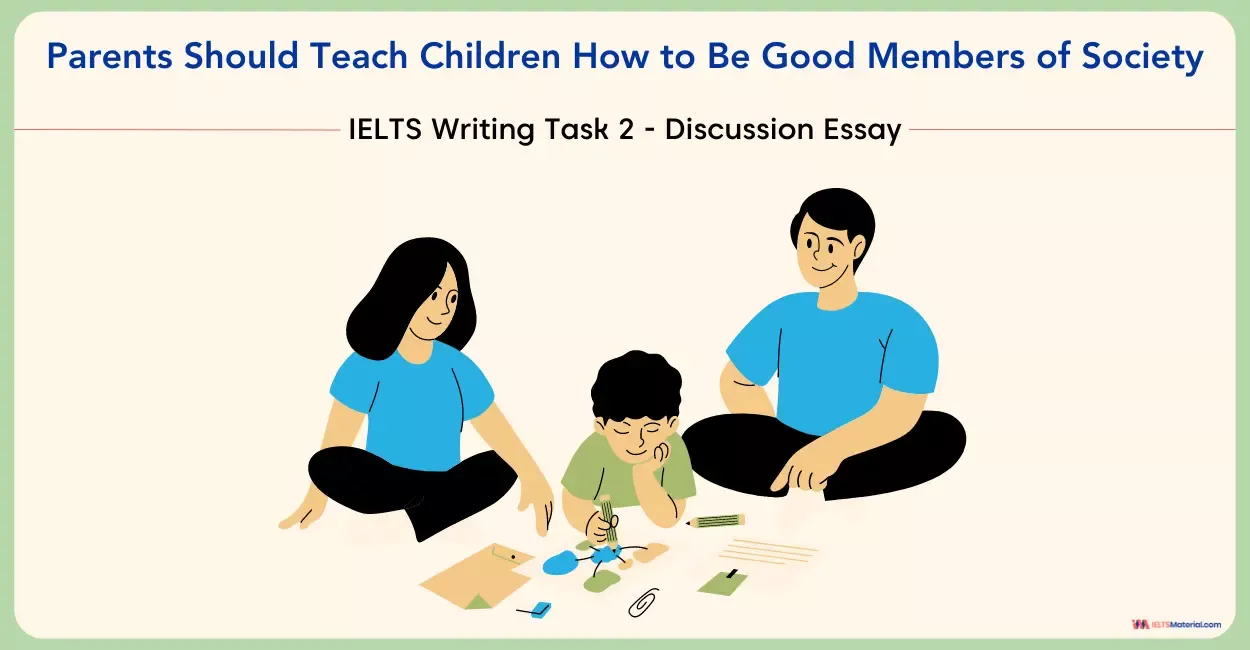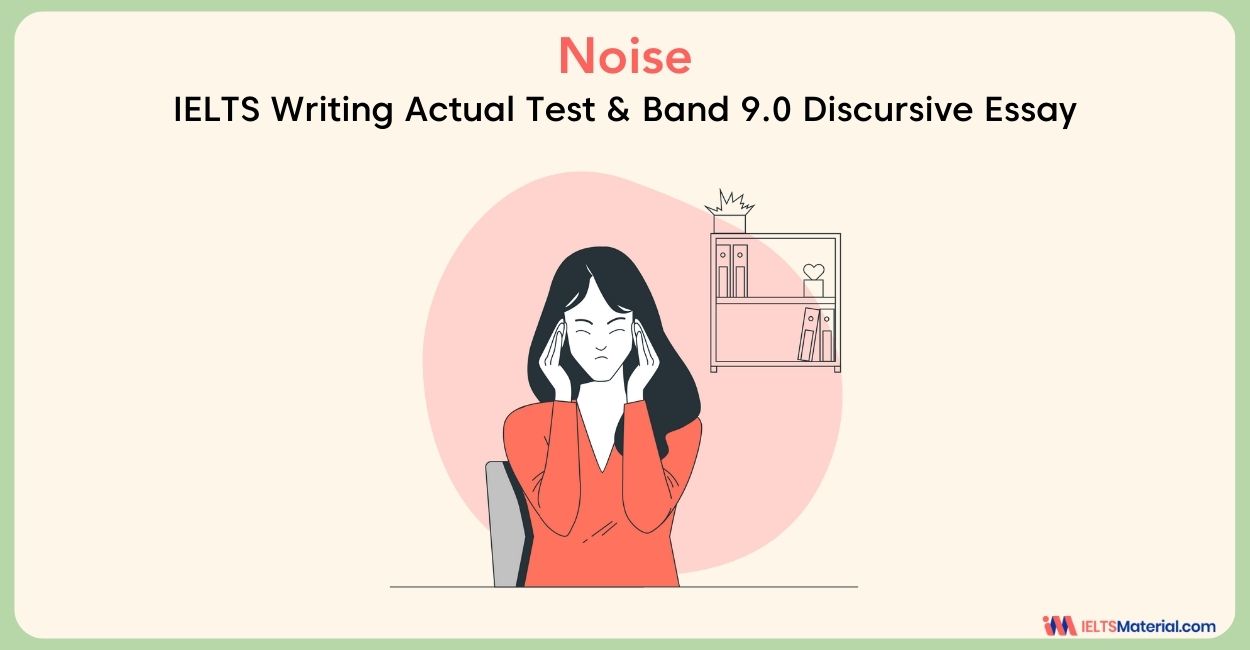Some people think that there should be some strict controls about noise – IELTS Writing Task 2 Discursive Essays
5 min read
Updated On
-
Copy link
Table of Contents
Limited-Time Offer : Access a FREE 10-Day IELTS Study Plan!
Some people think that there should be some strict controls about noise. Others think that they could just make as much noise as they want. Discuss both views and give your opinion.
Sample 01:
People have different views about whether noise should be limited. While some individuals believe the level of noise being created should be strictly controlled, I would argue that people should have the right to produce noise if they want to.
[do_widget id=custom_html-24]
On the one hand, there are several reasons why the government should control the amount of noise produced. The first reason is that too much noise can significantly affect people’s health. Living in a place that is too noisy can cause problems such as headaches, which can decrease the health levels of people, especially old ones. Additionally, noise can disturb people’s work or study. For example, a university student will not be able to concentrate on his preparation for exams if his neighbours keep singing too loud.
However, I believe people should be allowed to make as much noise as they want because of some reasons. Firstly, producing noise is sometimes considered a type of recreational activities. For instance, singing or cheering for a football club can be relaxing, and everyone has the right to do those things. Secondly, as the world is becoming more modern, people have found ways to deal with the problem of noise. Scientists have invented walls and windows that can block out the noise, which allows individuals to focus on their work without being disturbed. Therefore, the problem of noise can be reduced, and there is no need for people to be quiet.
In conclusion, while many people believe there should be controls about noise, I believe we have the right to create noise when we want to.
Useful Vocabulary & Expressions
- disturb: to interrupt somebody when they are trying to work, sleep, etc
==>If you get up early, try not to disturb everyone else. - concentrate: to give all your attention to something and not think about anything else
==>We’re concentrating even harder on giving quality service this year. - recreational: connected with activities that people do for enjoyment when they are not working ==>recreational activities/facilities
Sample 02:
People hold different views about whether people should have the freedom to produce noise or comply with some regulations of it. In my view, it is important that noise making be put under control.
On the one hand, it is understandable why some people believe in their rights to generate noise freely. As people these days often have to suffer from considerable stress at work or school, they tend to find an effective way to relieve it. In some cases, recreational activities such as karaoke singing or party holding can bring a certain amount of relaxation, mitigating stressful situations for everyone. If too strictly imposed, any restriction of noise may deter people from gaining access to one of the useful methods of relaxing.
However, I can understand the arguments against noise makers. Firstly, excessive levels of noise can cause serious disturbance to the nearby residents who also have the rights to take a proper rest after a tiring day. Those who are affected by the loud sounds from their neighbours may not only be unable to relax but also have their levels of discomfort increased. In the long term, this will definitely have a negative impact on their quality of life. Another reason for this opinion is that too much noise can exert detrimental effects on the health of the unintentional hearers. For example, constant exposure to high pitch noise can result in auditory problems, for example hearing loss. Hearing-impaired individuals are very likely to experience difficulty in their daily life.
In conclusion, although there are good reasons why people should be allowed to make as much noise as they wish, in my opinion some appropriate controls are necessary.
Useful Vocabulary & Expressions:
- To comply with sth (verb phrase): to act according to an order, set of rules, regulations or request.
==>There should be serious penalties for failure to comply with the regulations of treating hazardous waste. - To put sth under control/ To be put under control (prep phrase): to be deal with or limit sth successfully
==>The effort of reducing overpopulation in urban cities such as Hanoi and Ho Chi Minh would require the migration of people from other areas to be put under control. - Recreational (adj.): connected with activities that people do for enjoyment when they are not working
==>The large cities in Vietnam are widely perceived to offer a range of recreational activities and facilities which draw a number of domestic holiday makers from the neighbouring regions to relax during holiday periods. - To impose sth on sth (verb phrase): to officially force a rule, law or something to be obeyed and received.
==>One methods to deter alcohol consumption is imposing very high taxes on any purchases and heavy fines for illegal trades of alcohol. - To deter sth from sth (v): to prevent someone from doing something or to make them less enthusiastic about doing it by making it more difficult for them to do it or threatening bad results if they do it.
==>Teenage gang members can be deterred from committing crimes by means of strict punishments for all young delinquents to make an example of them. - To gain access to sth (verb phrase): to have the right or opportunity to use something
==>The concentration of prestigious universities and colleges in a few metropolises is responsible for the mass annual migration of students from rural areas and smaller cities who seek access to more quality education and more widely recognised degrees.
- Excessive (adj.): too much
==>The excessive consumption of fast food with a view to saving the cooking time is prone to chronic health conditions such as obesity, diabetes, heart disease and cancer. - Detrimental (adj.): causing harm and damage
==>Prolonged lack of sleep due to an overly busy timetable is known to have harmful side-effects apart from difficulty in concentration and temporary loss of memory. - Unintentional (adj.): not planned or intended
==>Some harmful habits of parents such as reckless driving and smoking, although (they are) unintentional, can lead the children to adopt these habits when they become adults. - Exposure to sth (noun phrase)/ To be exposed to sth (adjective phrase): the fact of experiencing sth or being affected by it
==>The residents who live permanently in urban cities usually suffer from continuous exposure to polluted air caused by vehicle emissions; as a result, they are prone to respiratory diseases such as asthma.
Bonus topic:
The level of noise around us is constantly increasing and is affecting the quality of our lives. What causes the noise? What should be done about it?
Also check :
Practice IELTS Writing Task 2 based on Essay types
Start Preparing for IELTS: Get Your 10-Day Study Plan Today!
Explore other Writing Actual Tests


Kasturika Samanta
Recent Articles


Raajdeep Saha
Kasturika Samanta

Akanksha Tripathi





Post your Comments
1 Comment